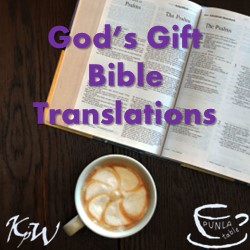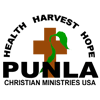
Episode 24T02 – God’s Gift to us, Bible Translations
(written by Dr. Kip Wehrman 01/26/2024)
Hello my friends. Bible Translations. This is a hot topic in Christian circles and each group and special interest seems to want to disparage other translations or elevate one higher than the others.
If you want to hear a more about this, please follow this link for a video discussion between Michael Licona and Daniel Wallace.
Daniel Wallace separates the available English Translations into four distinct groups; Accurate, Readable, Classic Elegance and Modern Elegance
Accurate translations make every attempt to be as close to the original manuscripts as possible. This is often called word-for-word translations which is not valid. None of these English translations are word for word from the original languages. It is impossible to produce a word for word translation from language to language which is readable in the second language. The “accurate” translations try to maintain as much of the original words as possible but sacrifice beauty and readability. Bibles that might be included in this category are the RSV, NRSV, ESV, ASV and NASB. The RSV was done by committee with the intention of providing a more accurate translation of the King James. They said the RSV provided the kings truth over the King James poor English. The NRSV was ecumenical translation which included evangelicals, Roman Catholics, Jewish rabbis, non-Christian scholars.
Readable translations range from the paraphrased to the thought by thought approach brought forward into modern English. These translations might deviate from the original words used in order to capture the overall intent of the passage in modern English.
Classic Elegant use beautiful rich words however many are not used in our modern world or perhaps the spelling of the words have changed. These translations are great for expanding vocabulary for Native English speaker. However, these classic elegant translations are not good for non-Native English speaker because many of the idoms and words used are either not used in modern English or don’t translate into other languages well. The Geneva, Tyndale, King James, and REB bibles fall into this category.
The classic translations are primarily based on the Textus Receptus which uses roughly eight Greek manuscripts. These began with the Tyndale translations which were in bulk used for the King James Version but other Bibles followed from Tyndale’s tradition including the NKJV, RV & RSV, NRSV & ESV and ASV & NASB.
Modern Elegant use beautiful rich words which are more commonly used in our modern English vocabulary. A good example of this is the ESV bible.
The BibleHub website categorizes bibles into modern, Classic, literal, Catholic, and early modern.
Now there are some obvious translations which would not be recommended like the Jehovah’s Witness’ New World Translation or the Seventh-day Adventist’s Clear Bible. Daniel Wallace would definitely not recommend these.
I believe the best translation is the one you read. I also believe great depth of understanding can be found from reading multiple translations. Especially if your native language is not English.
My personal study includes many translations. I typically read from NIV84, NLT, NAS, ESV, and NKJV. Often reading several for the same passage. When a phrase or word is significantly different in these translations or if my understanding is not clear, then I turn to Greek and Hebrew lexicons to see the original language words. Typically if the original words are widely varied in meaning, I look deeper in the AMP, NET, ICB, GNT, KJV, NRSV and others for further reading to see what professional translators have used.
I highly recommend NIV, ESV, and NET bibles for the reasons mentioned above. For Tagalog language speakers I do not recommend any of the Classic translations due the language and idioms used which are not in the original languages. Judy and Joy would recommend one of the modern Tagalog translations like the ang Salita ng Dios Biblia (Tagalog Contemporary Bible). Hearing and reading in your native language is a gift from God.
I also routinely read MEV, KJ21, Wycliffe, Tyndale, and REB bibles.
Christians should not fear these modern translations especially the translations done by expert committees. These professionals are in a much better position to understand the original language manuscripts than we are.
Summary of Bibles I used and why.
NIV – accurate to original language and readable modern English.
ESV – understated elegance with readable modern English, reasonable accuracy.
NAS – accurate but not easy reading (over corrects the gender term issues)
NET – accurate to original language, good for study and understanding translation deliberations.
AMP- expands words with multiple alternatives for Greek words, good for study, not very readable (not good primary bible)
ICB – International Children’s Bible attempts to use more child friendly words for young believers (not good primary bible)
KJV – beautiful rich language but not very accurate to original languages and uses middle English
NKJV – modernized KJV but poor word choices make this a poor reader but good study bible
NRSV – ecumenical translation (good for testing evangelical doctrines) (not good primary bible)
RSV – accuracy corrections of KJV but not easy to read. (not good primary bible)
CSB – a majority text tilted for Southern Baptist theology. Good for reading and studying (not good primary bible).
REB – has rich wording like the KJV (not good primary bible)
NLT- This is not a study bible but is an easy reading bible. I like reading new testament epistles in this translation if at least full chapters are read.
Bibles like living bible, GNT are good reading paraphrased bibles but are not adequate for study rather should be used when reading full books of the bible for contextual comparisons.
Happy Studying my friends.
May God grant you wisdom in choosing the best translations for your personal study.


